An unmarked taxi called by the hotel drives me to the railway station in Samarkand. The driver, a retired teacher of Russian, is easy to talk to: he skilfully guesses what I want to say and obligingly finishes sentences for me. Anyway, he is so talkative that I don’t really need to say anything – he is happy to have found a listener who understands Russian more or less. He doesn’t hide his nostalgia for the Soviet Union. “Life was better, we could afford to travel to Moscow, St Petersburg and the Caucasus…” In his voice I can hear a tone of longing and rapture. He adores the Russian language, which “you can speak all over the world.” After a while he realises he has gone a little too far. “Well, Russian is not as universal as English” – he admits. Apparently, for him Moscow, St Petersburg and the Caucasus make up the whole world.
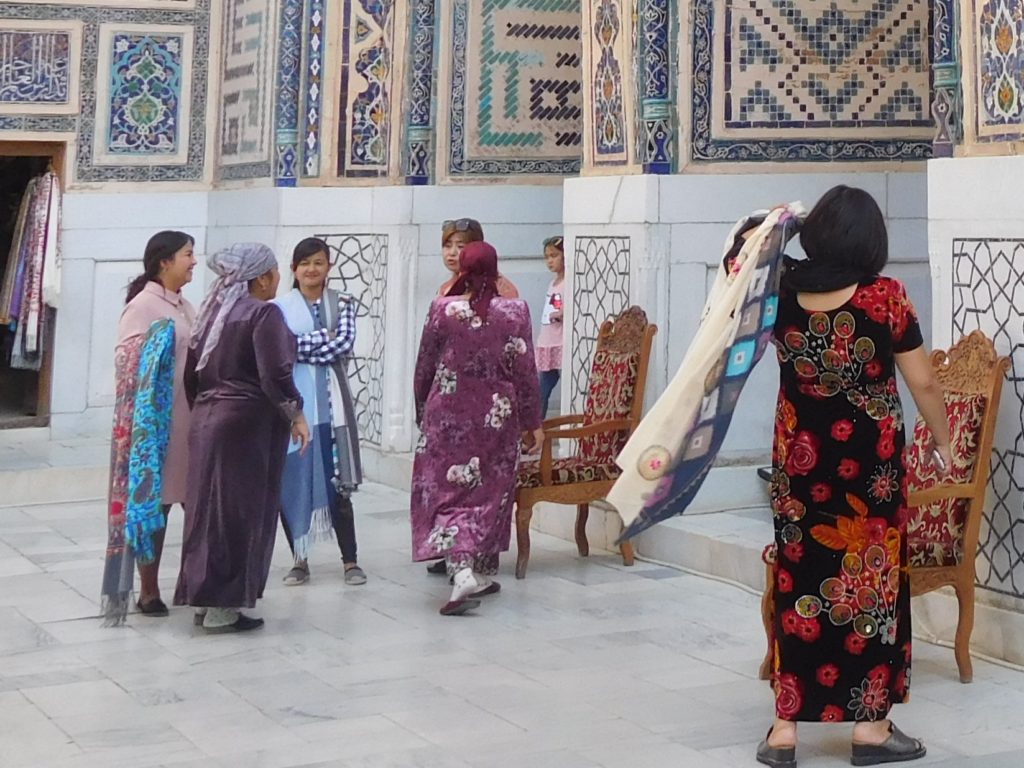
On the second day of my stay in Samarkand I promise myself I will not take a taxi. I am fed up with greedy and importunate taxi drivers. But it is scorching hot and I have already walked from the Bibi-Khanum Mosque to the archaeological site Afrasiab, and then to the Ulugh Beg Observatory. So I give up. I don’t actually catch a taxi, but I do let a taxi driver catch me. He wants “ten” for the drive to the Hazrat-Hyzr Mosque. I make sure he means UZS 10,000 and not USD 10 and get into his yellow taxi. It quickly becomes apparent that he has offered me a low price to try and talk me into a trip to an enchanting place, which he shows me a photo of and whose name means nothing to me. Or even better, into a trip to Shakhrisabz the next day, where in fact I do want to go. His offer is better than the one I received at the hotel (USD 30 instead of 35), but I know there are also shared taxis and I’m going to try to find one. – “Shared taxis are illegal!” – shouts the taxi driver and I suddenly realise this is the first time I’m riding in a legal yellow taxi – actually marked as a taxi. In Uzbekistan, it is common to flag down cars in the street and for anyone to drive strangers for a small fee. Officially it is illegal, but the authorities turn a blind eye to it. Having said that, the guy who drove me to Shakhrisabz the next day (there was no one to share the taxi with, but I negotiated a slightly better deal: USD 27) was nervous about the possibility of someone stopping the car and asking him why he was driving a foreigner. “We are friends – he instructed me how to answer questions – We met in Samarkand and I drive you to Shakhrisabz as a friend.” Fortunately no one stopped us. Before the trip, I read that travelling this way is safe, even for female solo travellers, so I got into the first illegal taxi at the airport in Tashkent. Another one, called by the hotel receptionist, picked me up the next day, and then I just carried on the same way.
Along the pedestrian precinct in Shakhrisabz there are new buildings housing restaurants and cafes. A signboard promises coffee so I enter, but it’s closed. The premises are being prepared for the opening, they are finishing off. It’s quite strange, as we’re at the end of the season…. I try another one. It hasn’t been finished either; there is no menu, but there are some tables and people in the yard. I’m not sure if they are guests or the owner’s friends. I’m served a sickly, undrinkable coffee and some sort of snack. When I ask for the bill, the owner hesitates for a while, looks at the sky as if seeking inspiration and then demands UZS 5,000. Half a dollar.
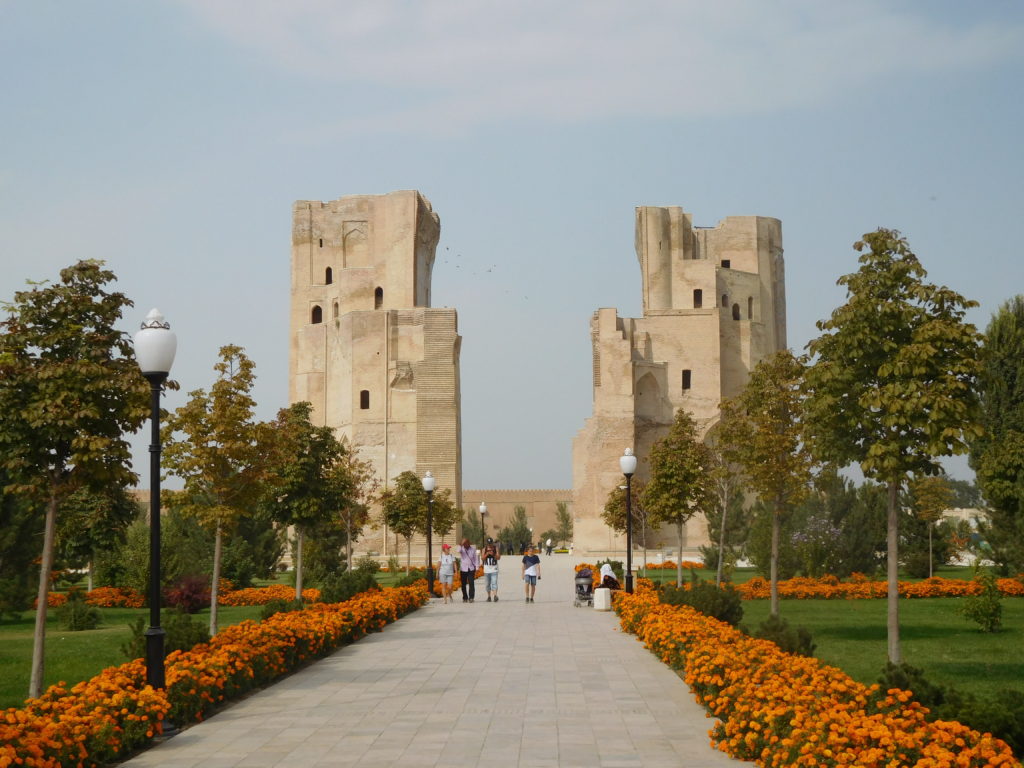
I’m on the way back from Shakhrisabz to Samarkand. I have a guidebook open in my lap. “What is in this picture? Turkmenistan?” – asks the (self-proclaimed) taxi driver. In fact, the photo shows Shakhrisabz, but it was taken at the other end of the town. He parked the car by the ruins of Ak-Saray and the picture presents the Dorut Tilavat complex. He has never seen it. It seems he has never seen a guidebook either. “Can I have a look? Is this whole book about Uzbekistan? Have you read it through? We don’t have such books”. Later I checked this in two bookshops in Tashkent. There were no guidebooks. “Where are you going from Samarkand? Bukhara, oh my God, as far as Khiva?” He has never been to Khiva. He has been abroad once. He worked for a year in Moscow.
- From Samarkand to Shakhrisabz/Z Samarkandy do Szahrisabz
- A break in the mountains: my driver is working for a tip/Postój w górach, czyli mój kierowca pracuje na napiwek
On the way to Shakhrisabz we talked about various topics, insofar as my command of Russian allowed it. (His Russian wasn’t fluent either – the knowledge of Russian in Uzbekistan is not as good and widespread as it was under the Soviet Union). Family. There are still many large families in Uzbekistan with four or even six children, though they used to be larger. His ninety-year-old grandmother had ten children, all boys. But he has no brothers, only sisters.
At school, children learn in two shifts. In fact, I saw children leaving schools after 18.00. There is a dress code: white blouses, navy blue skirts reaching below the knee and white tights for girls; white shirts, navy blue waistcoats and navy blue trousers for boys. However, these aren’t uniforms strictly speaking, as every blouse is different. The blouses and shirts are as white as snow and neatly ironed. Strangely enough, officials stick to a very similar dress code. It looks quite funny when they crowd the streets after 5 o’clock.
I’m asking about the Tajikistani minority. In Samarkand they make up half of the population. At school, Tajikistani children have to learn in Uzbek. In the larger cities there are schools where children learn in Russian. These are held in high regard, as they give children a future. President Putin insists that Uzbeks learn Russian for the sake of economic co-operation. “I can’t hire a translator for every Uzbek.”
In Bukhara, an elderly man gestures me into the yard of his house. It’s in ruins but I can see it’s very old and has beautiful ornaments. I can visit two rooms. It’s a sort of private, unofficial museum. I thank him and offer UZS 5,000, which is the price for minor tourist attractions. His face clearly shows disappointment. He tries to show me something with his fingers, I believe he wants another 5,000, but I decide it’s too much.
- A beauty salon in a poor district of Bukhara/Salon piekności w biednej dzielnicy Buchary
I enter the Bolo Haouz Chaikhana opposite the Bolo Haouz Mosque in Bukhara. It’s obviously popular, there are locals and groups of western tourists with local guides. It’s so busy that I can’t catch a waiter’s eye. The waiters there are as busy as bees, serving foreign tourists. On the contrary, the waitresses move slowly, looking in front of them with blank eyes. After ten minutes I change my table, choosing one centrally located. It works. A waiter comes up to me, takes my order in English and … passes it to a female colleague. She, in turn, quickly serves delicious, succulent shashliks, avoiding eye contact and not saying a word. So that was the problem! The waitresses pretend not to see tourists because they can’t communicate with them…
The receptionist, who I ask to call me a taxi, offers to drive me to the railway station in the middle of the night. He is very nice, but in order to avoid an awkward situation I ask, as always, about the price in advance. The guy is Tajik. He says that in Bukhara Tajiks make up as much as 80% of the population. He speaks Tajik, Uzbek, Russian and English (quite well). Tajik is spoken at home and in the street, whereas at school and in the offices they can communicate only in Uzbek. I ask if Tajiks are discriminated against in Uzbekistan. He denies it, but I’m not sure whether he understood my question. Or maybe he did, but doesn’t want to talk about it.
In front of the railway station in Urgench, I push my way through the ranks of importunate self-proclaimed taxi drivers, ignoring them all. I know I can easily get to Khiva using public transport. To find the right bus, I address the tourist police for the first time and ask for help. Their role is to help tourists and they are supposed to speak English. Well, this officer doesn’t. When I repeat the question in Russian he looks embarrassed. He doesn’t know. Western tourists travel to Khiva by taxi. He asks a taxi driver who says buses for Khiva leave from the bazaar two kilometres away. So I go to the bus at a nearby stop and ask a passenger standing by the door if it goes to the bazaar. The guy answers in the affirmative and takes my suitcase to help me get on the bus (this is how most men in Uzbekistan, including conductors, react: they help women getting on or off the bus/train with their luggage). To my surprise, he switches into English and asks if I have any Uzbek so’ms. If I hadn’t, he would probably have paid for my ticket (UZS 1,000; in Uzbekistan you pay for the ticket when getting off). He confirms that buses for Khiva leave from the bazaar. After a few minutes (the bazaar seems to be more than 2 kilometres away) he says that the next stop will be OURS. He gets off with me and finds the bus to Khiva. I thank him warmly and say good bye, but he doesn’t go away. He gets on my bus and talks to the driver. Then he comes up to me to tell me how much the ticket is (UZS 3,000) and we say good bye to each other once again, this time for good. Although people in Uzbekistan are generally friendly and helpful, I experienced this kind of hospitality (typical of the Caucasus) only once.
- Vendors of souvenirs in Khiva/Sprzedawcy pamiątek w Chiwie
My bus arrives at Khiva. The map on my phone shows we are not far from the centre of the town, but it looks like suburbs. In Russian, I ask a young woman standing next to me where I should get off. No reaction. I repeat the question. No word, no gesture, no smile. In Khiva I will meet more people who don’t speak any foreign language. The driver speaks Russian a little, but is not at all helpful. We get to the terminus at the bazaar. It seems to be outside of the town. I look around helplessly. After a while, a van that looks like a marshrutka pulls up and the driver offers me a lift. This time I don’t even ask about the price. The guy isn’t familiar with the name of my little pension, or the name of the side street where it is located, so he rings them up and asks for directions. After a few minutes we get there. He demands a ridiculously low amount of UZS 3,000. I give him a note of 5,000 and thank him profusely, asking him to keep the change.
On the way back I get on the trolleybus at the terminus. Inside there are children coming back from school. I can hear their giggle. “A tourist”. More children get on, some of them as young as six or seven years old. They travel to and from school ON THEIR OWN, which also shows how safe this country is. A young woman is sitting next to me. When I ask her if she speaks Russian, she shakes her head smiling, a little embarrassed.
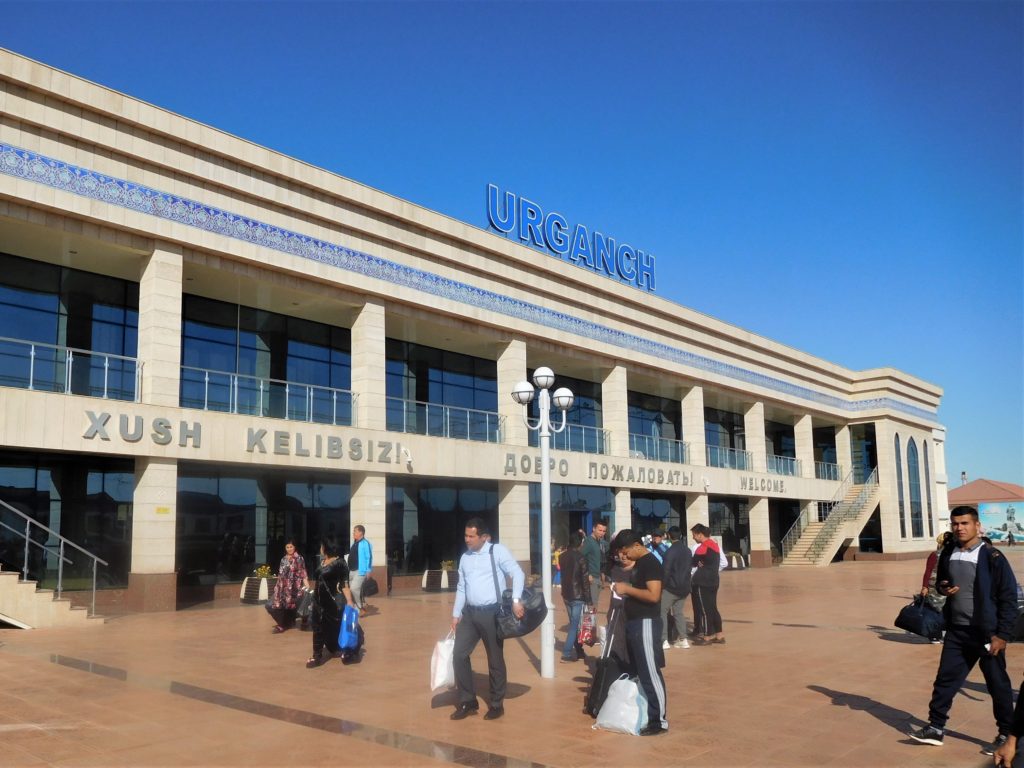
A (self-proclaimed) taxi driver on a short route in Urgench. “From Poland? I know, your president died in a plane crash. How do you live in Poland?” He asks if I know a Russian pop singer whose song is playing on the radio right now. He is surprised when I say we don’t listen to Russian pop in Poland. Half an hour later, in the waiting room of the railway station, a young man strikes up a conversation. He has European features so I guess he’s Tajik. “From Poland? Is it in Europe?” Looking at an elderly European couple sitting nearby he asks, “Are you together? No? Are you travelling alone? Without a guide???” Except for very young people, most European tourists, including small groups of friends and couples, travel with local guides who also serve as interpreters.
The night train from Urgench to Tashkent draws more than a dozen cars. The dining car is the next one along, so I go there to have a cup of tea. I stop at the door and for a while resist the urge to turn back. The atmosphere is very soviet, the interior looks quite scruffy. And what individuals by the tables! Most of them must be tipsy, the waiter is tipsy for sure. “Only tea? Won’t you have anything to eat? Why?” For a moment I wonder if he will kick me out. If I had known there would a dining car here, I might not have brought along supplies of food for the fifteen-hour journey. But I get my tea – even on the train they serve it in a nice pot and bowl, not in a cup. On special request, and after several minutes of searching, I’m also served sugar.
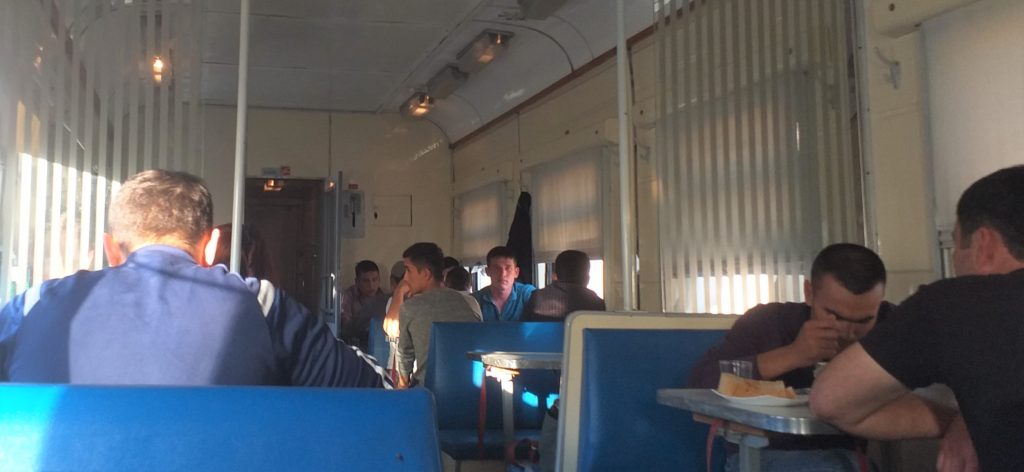

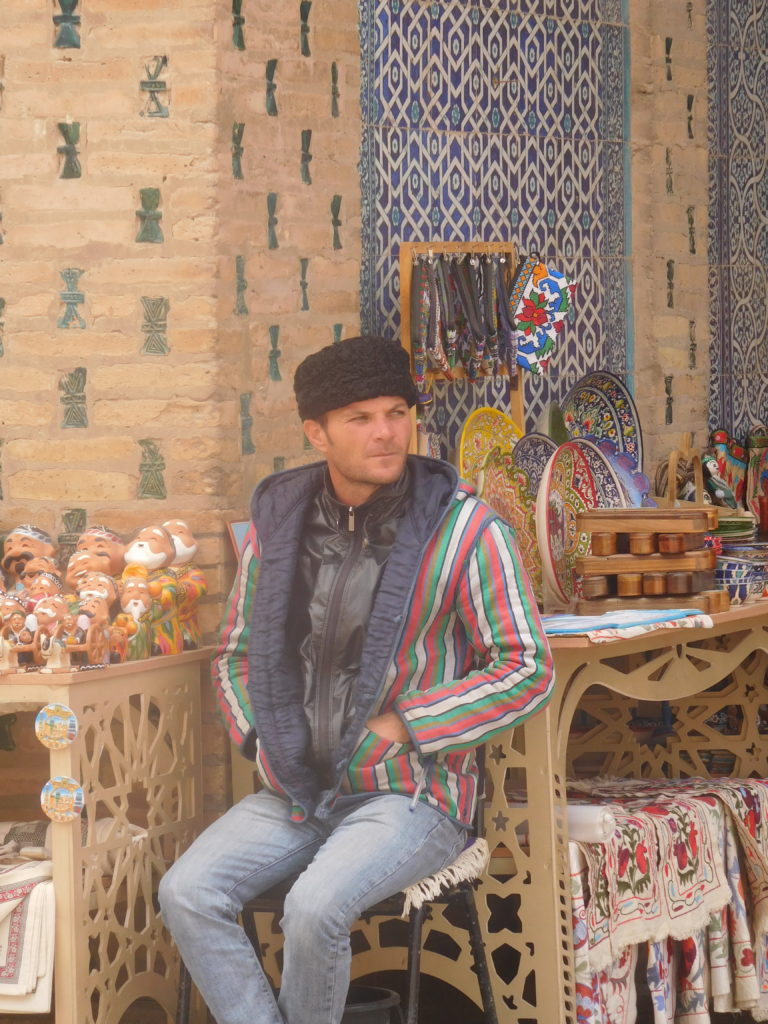
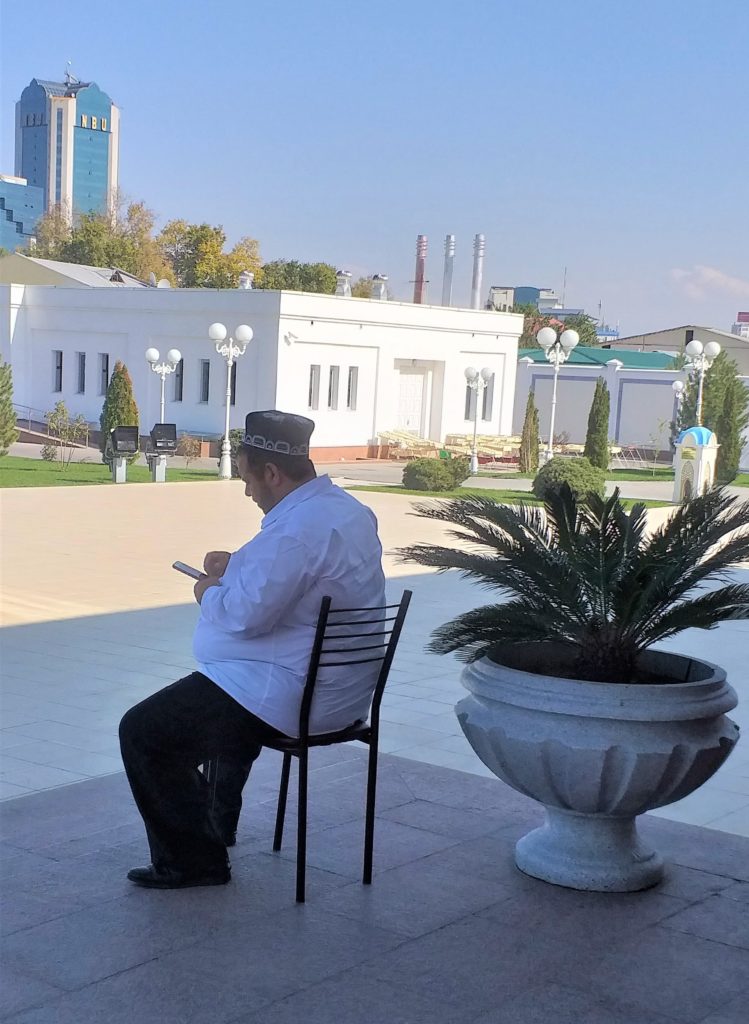
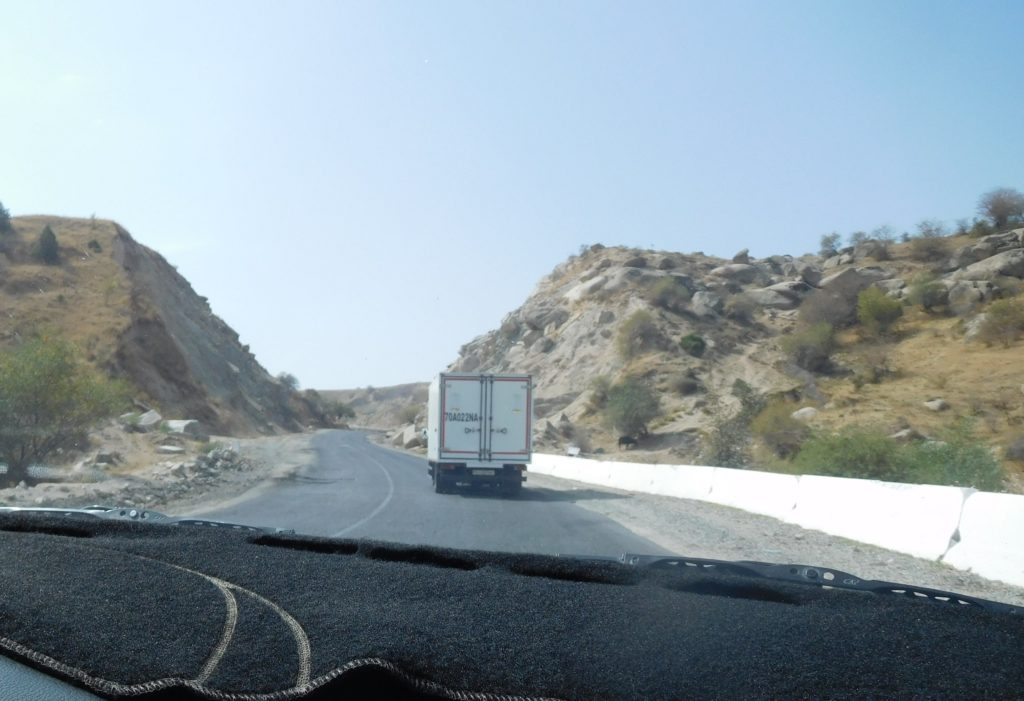
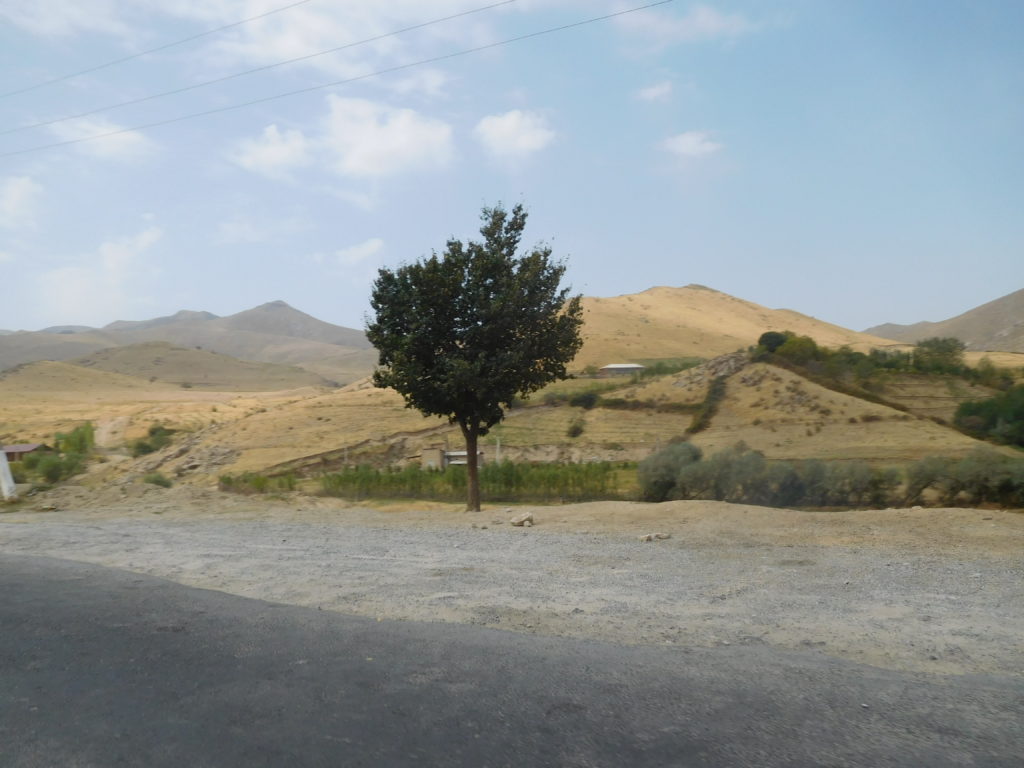
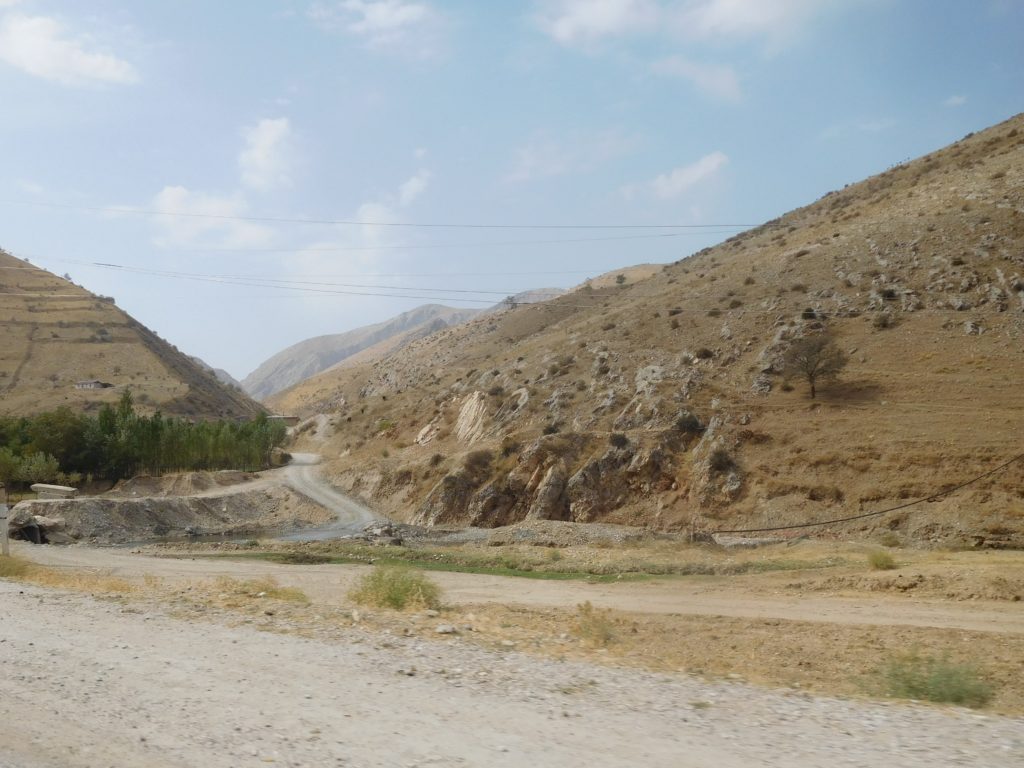
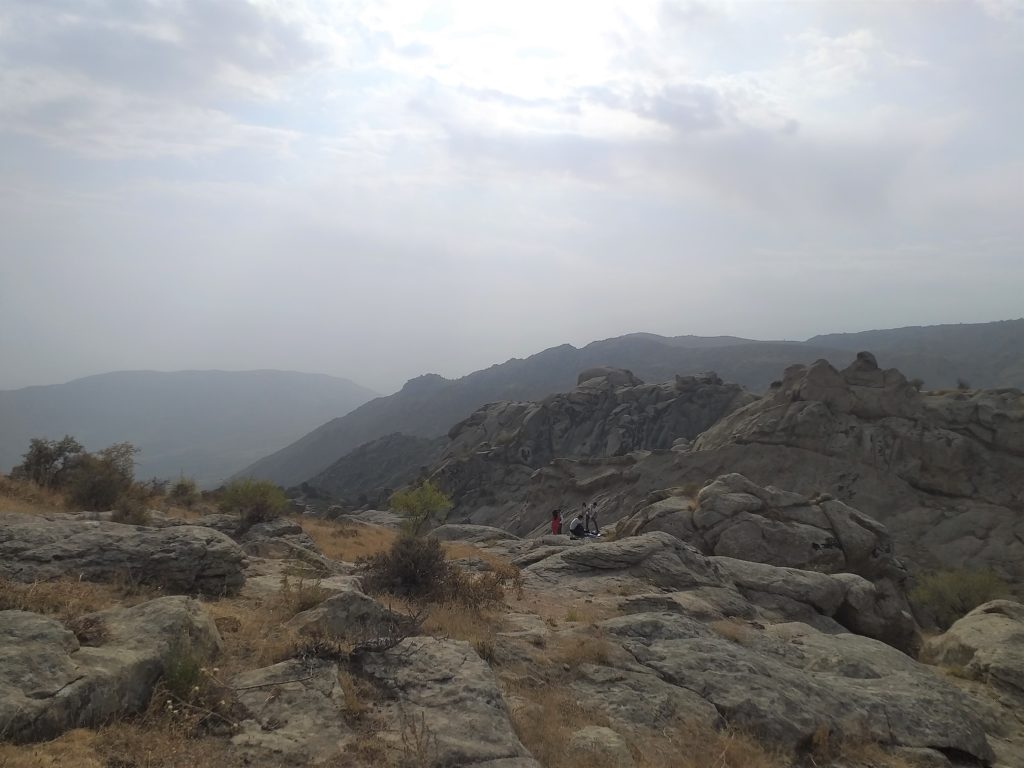
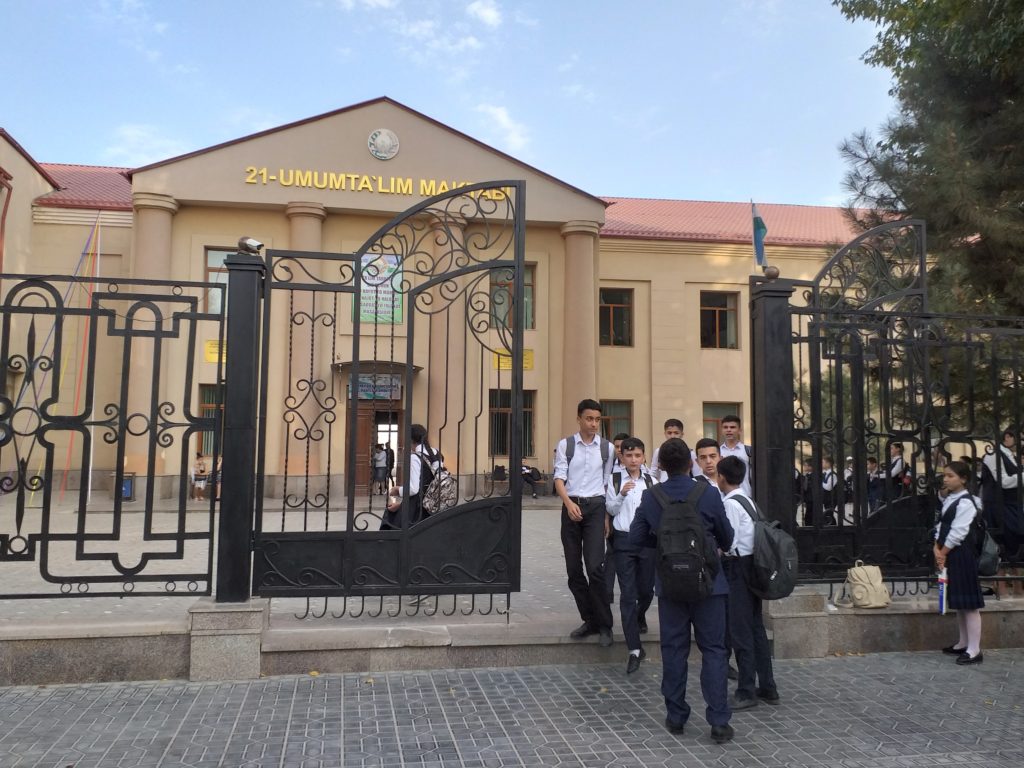
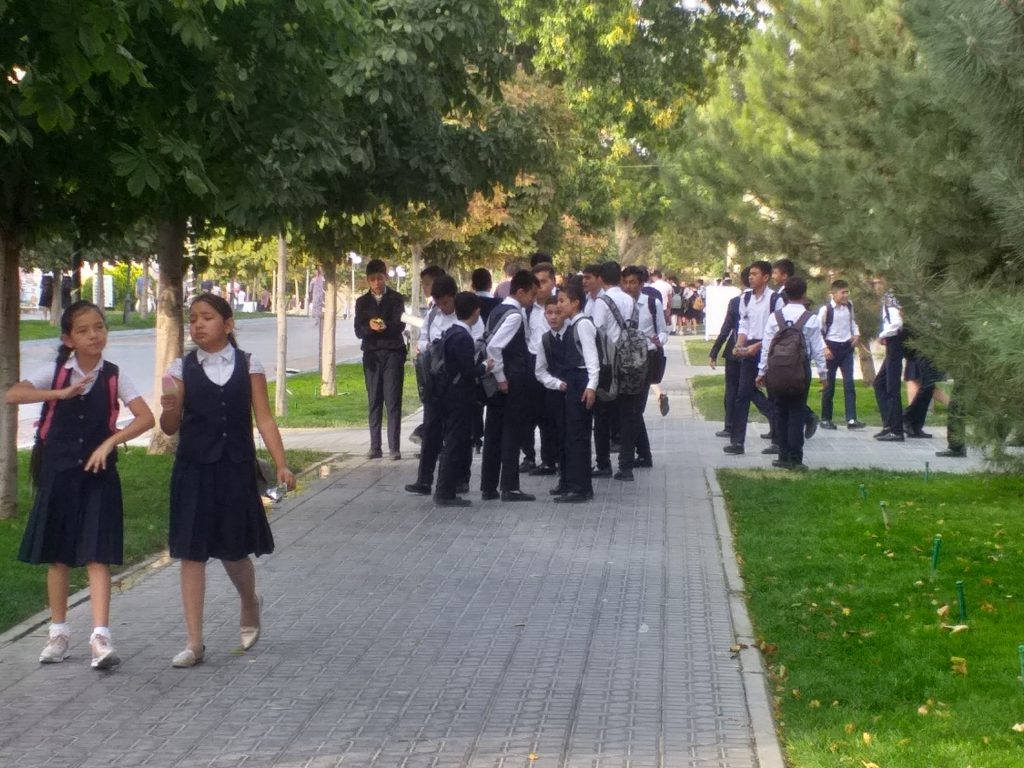
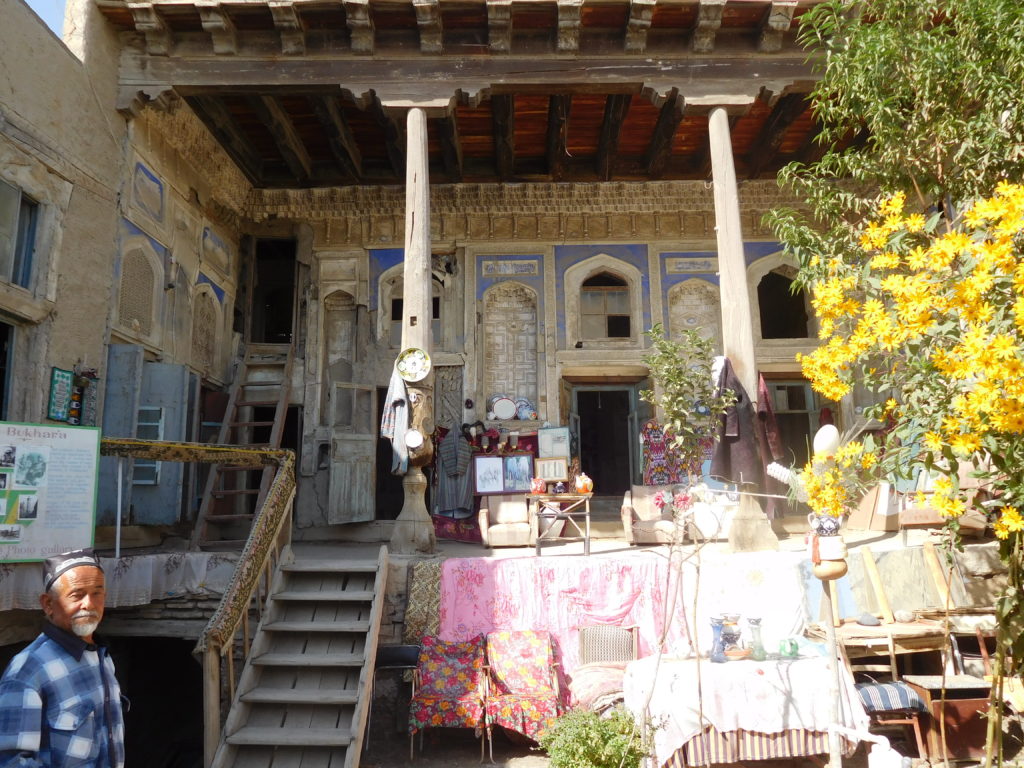
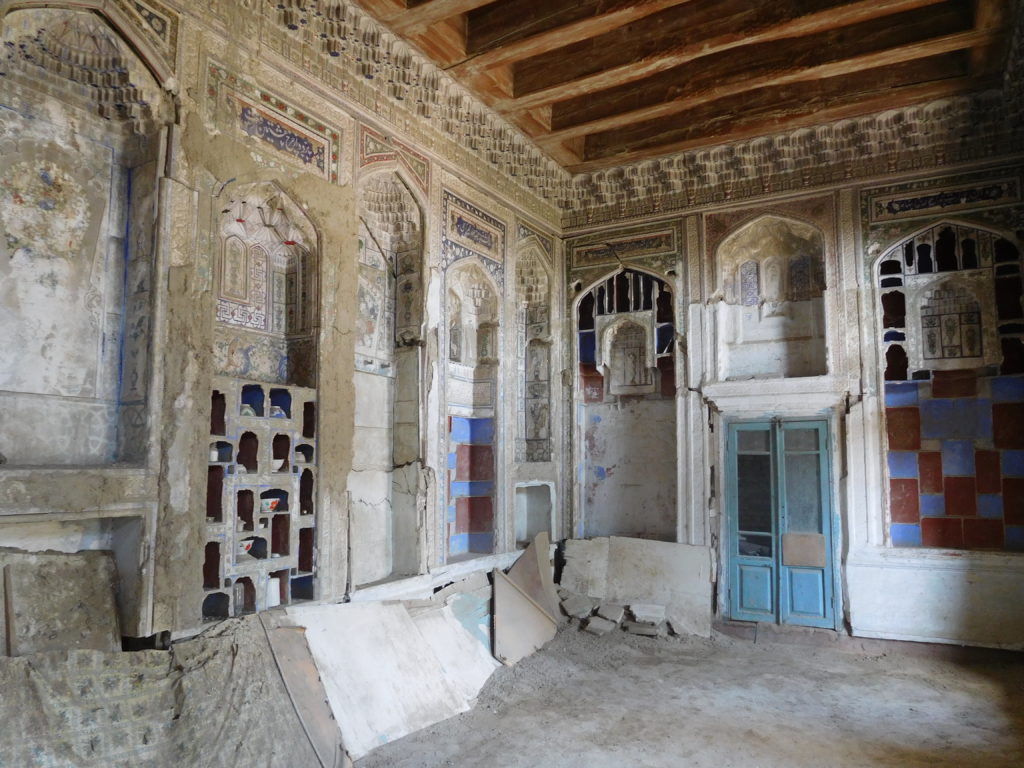
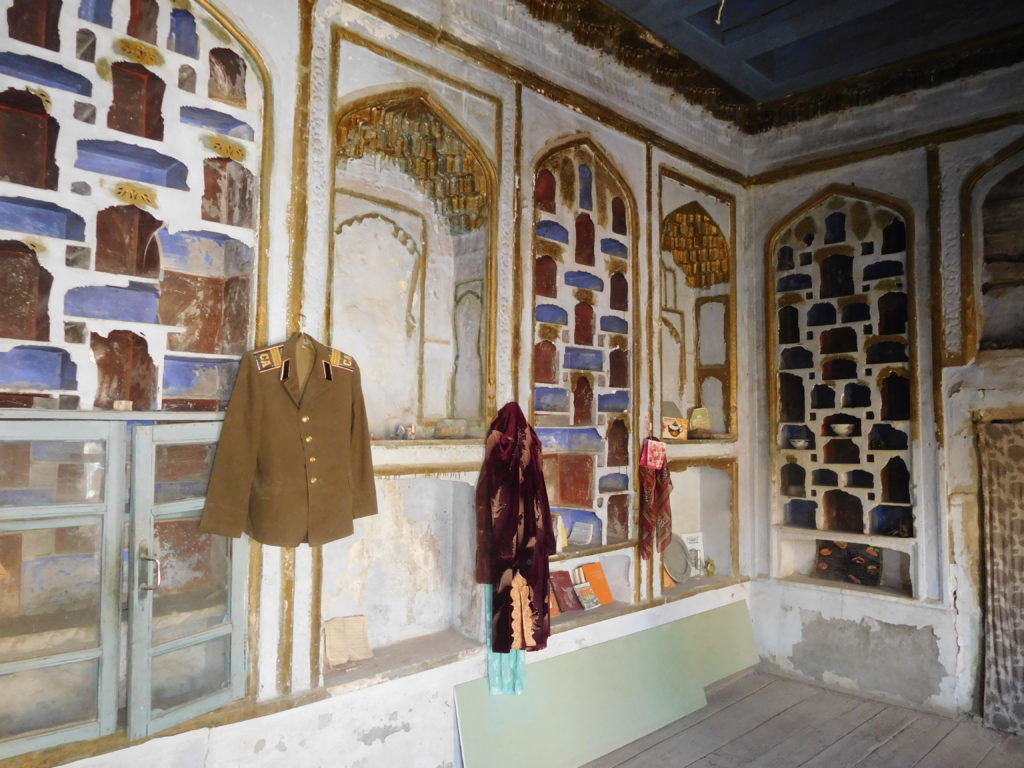
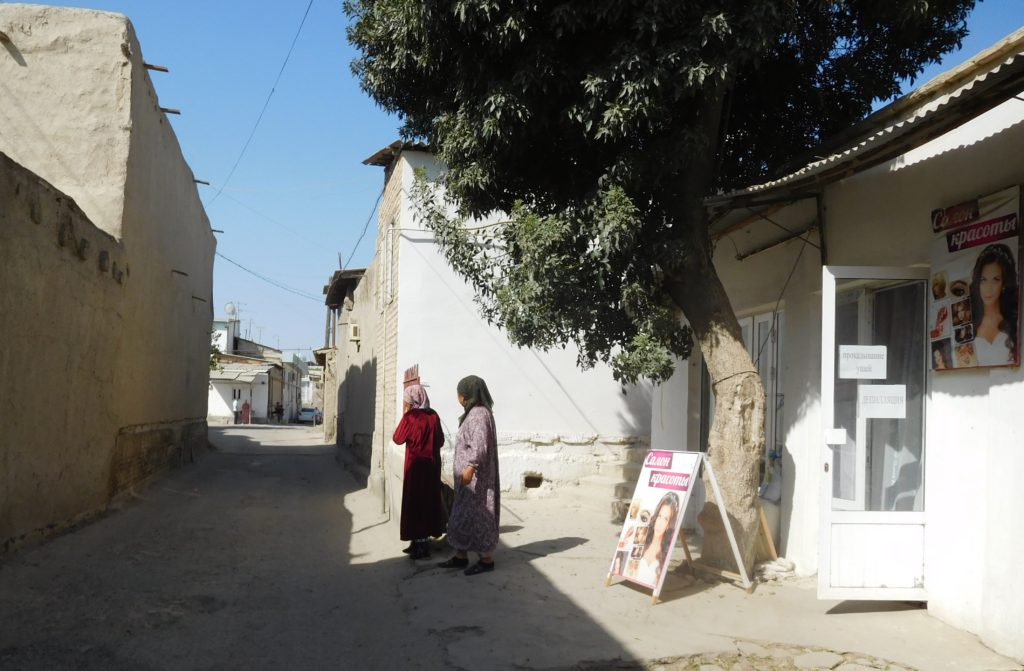
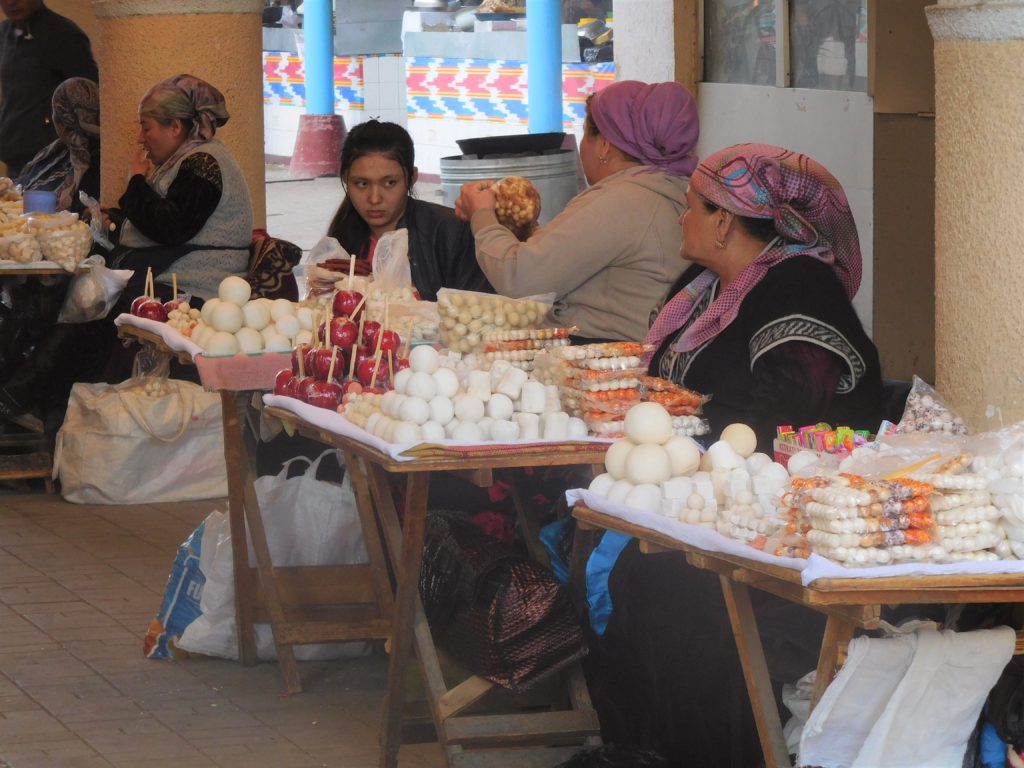
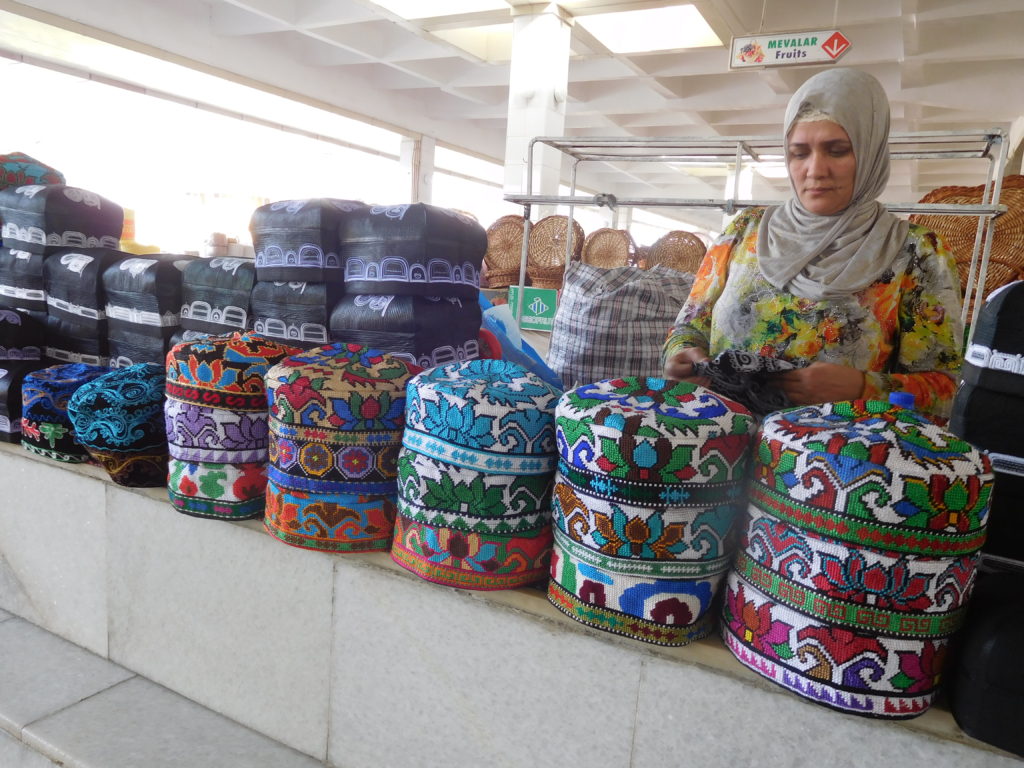
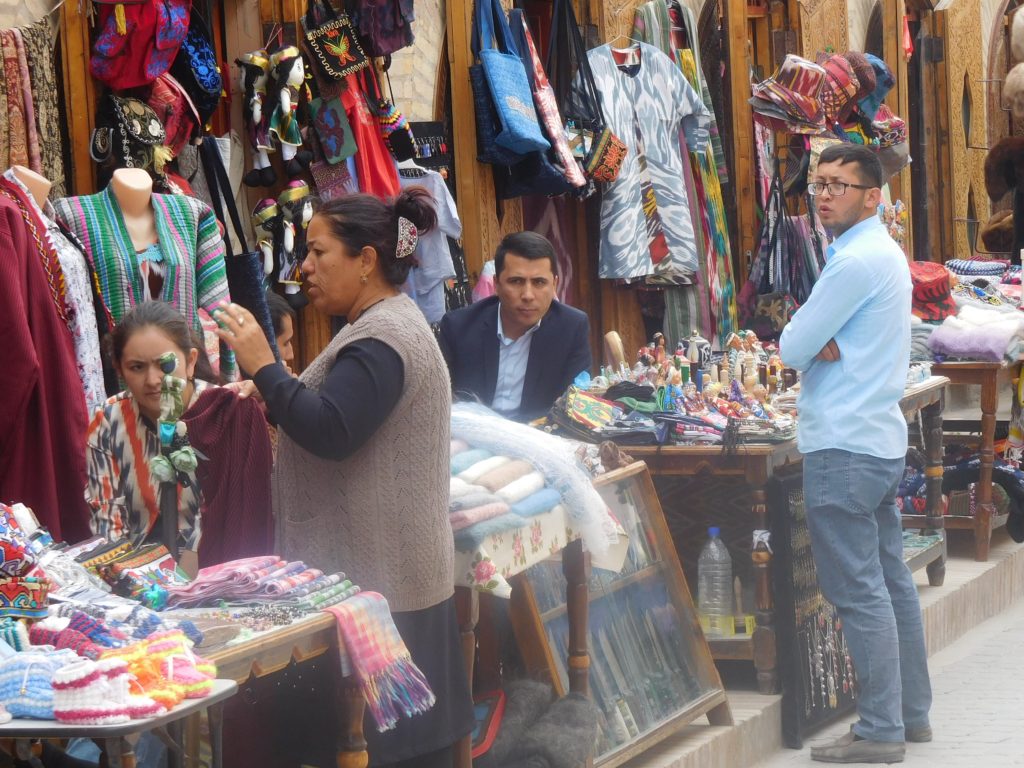
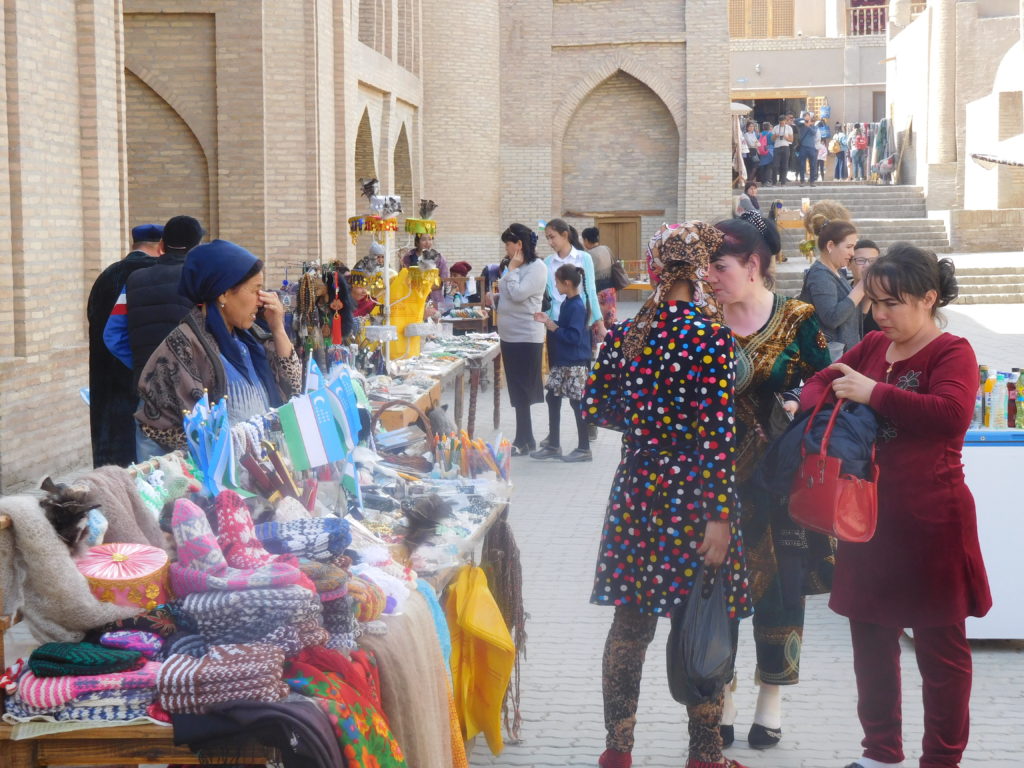
I am really thankful to the holder of this website who has shared this fantastic piece of writing at here.
Thank you and welcome on my blog 🙂